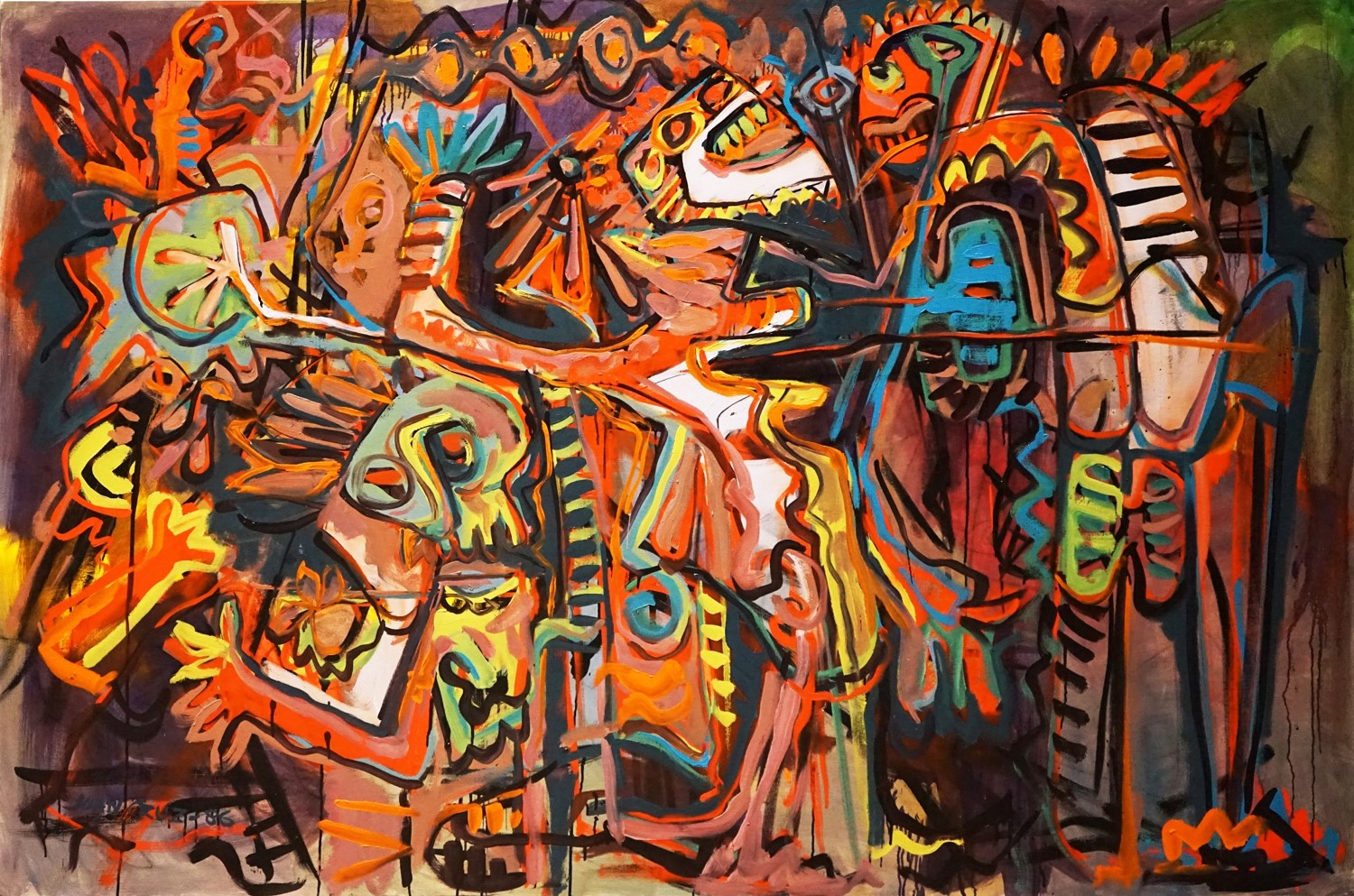Syracuse-based artist Juan Alberto Cruz (b. 1941, Puerto Rico) combines rich symbolism with a bold and colorful abstract style to create work infused with his Caribbean heritage. Moving from Puerto Rico to Manhattan’s Lower East Side and subsequent travels to Spain, Mexico, Cuba, and Central America have had a major impact on Cruz’s work, which reflects a mixture of his cultural heritage and life experiences. From his earliest portrait paintings to recent abstract collages, Cruz uses the emotional realities of his past to articulate his feelings about economic inequality and systematic injustice. As a child, Cruz taught himself to draw by copying the comic strips from discarded newspapers onto brown paper grocery bags, and later he drew portraits of everyday people that he sold for pocket change on the street. It was not until his thirties, when he enrolled in an art program led by then-Everson Director Jim Harithas that Cruz learned art could be more than replicating the world around him. Harithas taught Cruz how to paint and introduced him to a world of modern artists, which led Cruz’s drawings and paintings to evolve into a complex amalgamation of figurative and abstract forms. For the past fifty years, Cruz’s boundless creativity and production has led him to compile a massive body of work. Manchas (which means “stains” in Spanish) addresses the violence that historically accompanies colonialism, the practice of one country occupying another and assuming control over that country’s people, often while exploiting the country economically. Brimming with struggling figures, tumultuous movement, and explosions of color, the painting depicts colonialism as an act of racism and greed. Cruz paints colonizers leaving a stain of violence in their wake as they move from territory to territory, appropriating land and decimating the heritage of an entire population. Manchas is currently on view in Juan Cruz: A Retrospective through August 4, 2019.
-Steffi Chappell, Assistant Curator


